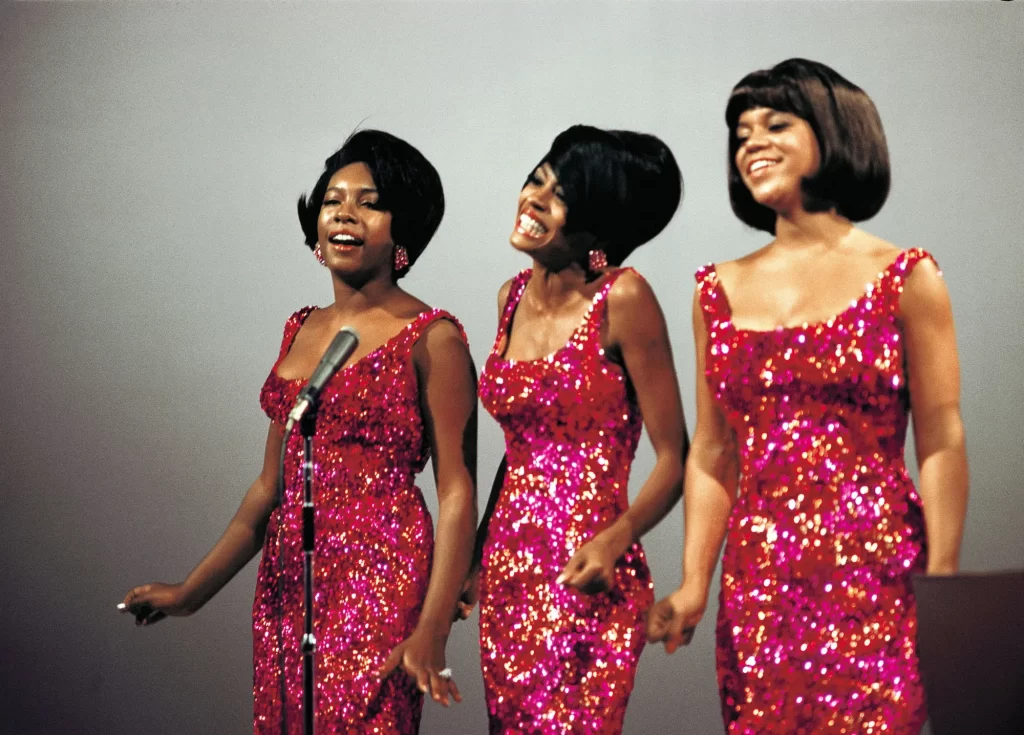
by Roger L. Simon
Cue Diana Ross—the Supremes are back!
OK, not those Supremes. Those other Supremes known as SCOTUS (Supreme Court of the United States).
You can tell they’re doing the right thing because the gang at The View is having conniption fits—or so I’m told, since I never watch it.
To carry forth the Diana Ross theme, those government Supremes have “stopped in the name of love” (for the American people) several programs of the supposedly liberal or progressive Biden administration that in reality aren’t liberal or progressive at all, but reactionary.
Do you “Hear a Symphony”? OK, enough of that.
Whatever you say about our 45th president, Donald J. Trump—and I say mostly positive things—he certainly did well with his Supreme Court selections.
Well, up to a point. Associate Justices Brett Kavanaugh and Amy Coney Barrett have had their rocky moments—perhaps out of fear the court would be packed—but have shaped up of late, particularly in recent decisions I will get into in a moment.
And the man who is today’s Antonin Scalia was nominated by President George H.W. Bush.
I never say “long live” anybody because it smacks of fascism and was said of people like Francisco Franco, but I do say “Long Live Clarence Thomas!” I hope the man makes it to 120 and stays on the court until he’s 118.
But on to the rulings—first up being Biden’s attempt to wipe out student loan debt by executive order.
“How is that constitutional?” I wondered when I first heard about it, and apparently the Supreme Court agreed 6–3. But it was more than just constitutionality. It would seem evident it was a bad idea if you were remotely in favor of “fairness.”
How is it fair to cancel the loans of one group when many have already been paying or have paid off theirs, in some cases for years? Not to mention it forces those who elected not to go to college—a growing cohort with increasing justification for their decision—to pay, via taxation, for those who chose to go. Fair? Not even close.
But beyond all this is the issue known in economics as “moral hazard”—a phrase that has been defined variously but basically, according to The Economic Times, “is a situation in which one party gets involved in a risky event knowing that it is protected against the risk and the other party will incur the cost.”
The first party in this case is the student or family taking out the education loan while knowing they won’t have to pay it back because you, the taxpayer, will pay it for them.
What Biden is attempting in this obvious vote grab actually is giving a message to these young people that would, in many cases, ultimately destroy their lives.
Then there’s the Supremes’ earlier decision on “affirmative action” that for years has delivered a similar message replete with its own form of “moral hazard.”
As someone who was in the civil rights movement, I became suspicious of affirmative action quite some time ago. Something was going wrong, its roots well-described in Shelby Steel’s “White Guilt: How Blacks and Whites Together Destroyed the Promise of the Civil Rights Era.”
That 2007 book that I consider a modern classic is now being made into a documentary by Shelby and his son Eli Steele. It’s none too soon.
Here’s a sample of Shelby’s work for those who don’t know it:
“Anti-Americanism, whether in Europe or on the American left, works by the mechanism of white guilt. It stigmatizes America with all the imperialistic and racist ugliness of the white Western past so that America becomes a new kind of straw man, a construct of Western sin. (The Abu Ghraib and Guantanamo prisons were the focus of such stigmatization campaigns.) Once the stigma is in place, one need only be anti-American in order to be ‘good,’ in order to have an automatic moral legitimacy and power in relation to America.”
That was authored by a black man who was able to write that eloquently and insightfully without the aid of affirmative action. I am proud to know him as a (too-distant) friend.
Meanwhile, consider for a second the self-image of the black student sitting in the library at Harvard or Yale surrounded by people whose SATs were 200 points above his or hers. What is he supposed to think? Is he supposed to forget this? Can he? Does he feel like a charity case not just for the moment, but for the rest of his life? What does that do to him? Is he likely then to be angry?
Back in the old civil rights days, we fought for integration. Now, on college campuses across the nation, we see segregation growing, with black students even having their own graduation at Harvard.
We were fighting for that? How did that come to pass?
Would things have moved along to that desired equality more successfully without affirmative action regulations that caused discrimination against others, mainly Asians? I would bet on it.
Associate Justice Sonia Sotomayor is upset about the SCOTUS decisions to end affirmative action because “at bottom, the six unelected members of today’s majority [upended] the status quo based on their policy preferences about what race in America should be.”
Unelected? What was she? Who elected her?
I wonder if Sotomayor knew of the Pew poll from early June saying 50 percent of U.S. adults disapproved of selective colleges considering race or ethnicity in admissions, while only 33 percent approved.
Hers was truly a minority opinion.
As is so often the case, the more “liberal,” the more reactionary.
I await “White Guilt: The Motion Picture.”
First published in the Epoch Times.







